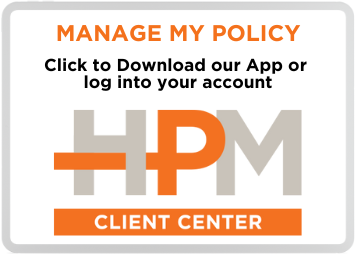Group Health Insurance in New Hampshire
What is Group Health Insurance?
Many New Hampshire employees rely on their employer's group insurance for their own and often their family's health coverage. The health coverage becomes part of employees' compensation packages, and the quality of the coverage can significantly impact how current and prospective employees view their compensation.
Group health insurance is so-named because this type of coverage is provided for its employees and owners. Typically the employees would have to be full-time and on the payroll. The business would also have a minimum of two full-time employees to be eligible for group health insurance in New Hampshire. It is also a requirement that 75% of all eligible employees/owners participate unless they have other coverage (i.e., insurance through spouse's employer or dependent under parent's policy.)
What Businesses in New Hampshire Should Offer Group Health Coverage?
As mentioned, many New Hampshire businesses can benefit by adding a group health policy to their benefits package because employees see this as a valuable form of compensation. Some businesses may even have trouble attracting employees if they don't offer a policy.
Who Pays the Premiums Associated with a Group Health Policy?
While businesses may be the ones to offer group health policies, they aren't the only ones who pay for these policies. Often, businesses will pay a portion of a policy's premiums and ask employees to pay the rest. How much employees pay depends on whether they get coverage for just the employee, the employee and their spouse, or the whole family.
How Much Group Health Coverage Should Businesses Offer?
There’s no set amount of group health coverage that every business should offer. When selecting a coverage level, businesses should keep in mind what competitors provide and how much employees make. The right amount will likely be at least similar to what competitors provide, and it’ll be something that employees can afford.
Are Vision and Dental Coverage Included in Group Health Policies?
Vision and dental coverage typically aren't included in group health policies. However, the group may purchase stand-alone dental insurance and/or vision insurance plans to cover these benefits.
Eligibility Requirements: The Nuts and Bolts!
To be considered for group health coverage, a carrier will require a minimum of two employees. The eligible employee works on a full-time basis with an average workweek of 25 or more hours for compensation. Each year an employer should verify that his group still meets the eligibility requirements for group coverage. A health insurance carrier reviews the application for compliance when a group starts a new plan and may audit each year at renewal by requesting a certification form verified with a WR-30.
The following items are also necessary for compliance:
- At least 75 % of the employees must be employed in New Hampshire
- The employer has the right to decide on a waiting period for new employees to enroll in the plan - 0 to 3 months in New Hampshire
Type of Group Plans Available
- HMO: This managed Care plan gives your employees the security of lower out-of-pocket expenses, comprehensive coverage, and virtually no claim forms to fill out. Employees choose a primary care physician who will manage medical care and refer employees to specialists and hospitals within the network.
- PPO: This preferred provider organization gives the employees the largest selections of network doctors and hospitals. If the employee uses the network, he receives a higher level of coverage; if he chooses out-of-network physicians or hospitals, he pays a higher share of the cost. Various plan designs are available.
- HSA: A Health Savings Account is like a 401K for healthcare. It is a tax-advantaged personal savings or investment account that individuals can use to save and pay for their qualified healthcare expenses, now or in the future. Paired with a qualified high deductible plan, the HSA is a powerful tool that empowers consumers to be more actively involved in their health care decisions. HPM Insurance has the necessary knowledge and expertise to assist both employers and employees considering Health Savings Accounts.
- Dental Coverage: May be purchased as a stand-alone plan
- Vision Coverage: May be purchase as a rider (an add-on) to group health plans or a standalone plan.
Important Definitions:
Office Visit Co-Payment: Employee payment for office visits
Deductibles: An amount that may be deducted by the insurance carrier from the total that they will pay toward hospital and other services, in-network and/or out-of-network
Network of Participating Physicians: Doctors who are contracted with the plan
RX Coverage: Coverage for prescribed medications. Tiered RX plans may be available for Generic/Name Brand/Non-Formulary Drugs (i.e., $10/25/50)
Guaranteed Issue: In New Hampshire, no one can be declined due to a pre-existing condition.
COBRA or Insurance after work:
COBRA (Consolidate Omnibus Budget Reconciliation Act of 1985) requires businesses to extend their group health insurance coverage to an employee who leaves or is terminated for reasons other than cause. The employee must pay the premium to the employer, who includes it with his monthly payment to the company.
In New Hampshire, companies with two to nineteen employees must continue to provide coverage for twelve months after termination. The coverage must also be offered to the employee's spouse and child. All potential beneficiaries must apply for continued coverage within 45 days of receiving letter from the carrier.
How Can New Hampshire Businesses Get Group Health Insurance?
If your New Hampshire business would like to offer employees group health insurance, contact HPM Insurance. Our agents are familiar with these policies and can guide you through all of the choices that must be made when selecting a policy. Being independent, they can also compare several insurers' policies to help you find the best one for your business and employees.



